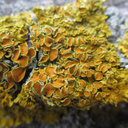Triterpene saponosides from Lysimachia ciliata differentially attenuate invasive potential of prostate cancer cells.
Açar sözlər
Mücərrəd
Neither androgen ablation nor chemotherapeutic agents are effective in reducing the risk of prostate cancer progression. On the other hand, multifaceted effects of phytochemicals, such as triterpene saponins, on cancer cells have been suggested. A promising safety and tolerability profile indicate their possible application in the treatment of advanced prostate cancers. We analyzed the specificity, selectivity and versatility of desglucoanagalloside B effects on human prostate cancer cells derived from prostate cancer metastases to brain (DU-145 cells) and bone (PC-3 cells). Prominent growth arrest and apoptotic response of both cell types was observed in the presence of sub-micromolar desglucoanagalloside B concentrations. This was accompanied by cytochrome c release and caspase 3/7 activation. A relatively low cytostatic and pro-apoptotic response of cancer cells to a desglucoanagalloside B analog, anagallosaponin IV, illustrated the specificity of the effects of desglucoanagalloside B, whereas the low sensitivity of normal prostate PNT2 cells to desglucoanagalloside B showed the selectivity of its action. Inhibition of cancer cell motility was observed in the presence of both saponins, however only desglucoanagalloside B attenuated cancer cell invasive potential, predominantly through an effect on cell elastic properties. These data demonstrate the versatility of its effects on prostate cancer cells. In contrast to PNT2 cells, cancer cells tested in this study were relatively resistant to mitoxantrone. The multifaceted action of desglucoanagalloside B on basic cellular traits, crucial for prostate cancer progression, opens perspectives for elaboration of combined palliative therapies and new prostate cancer prophylaxis regimens.




